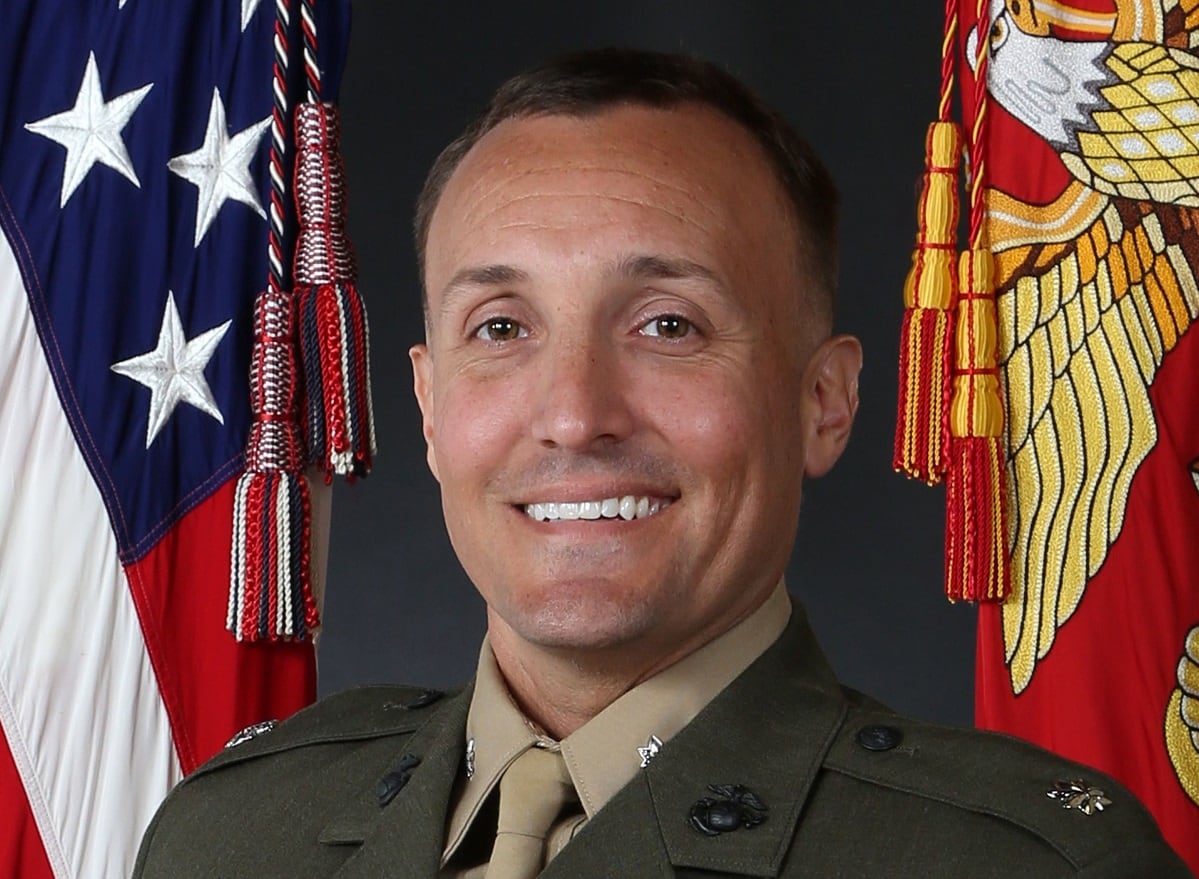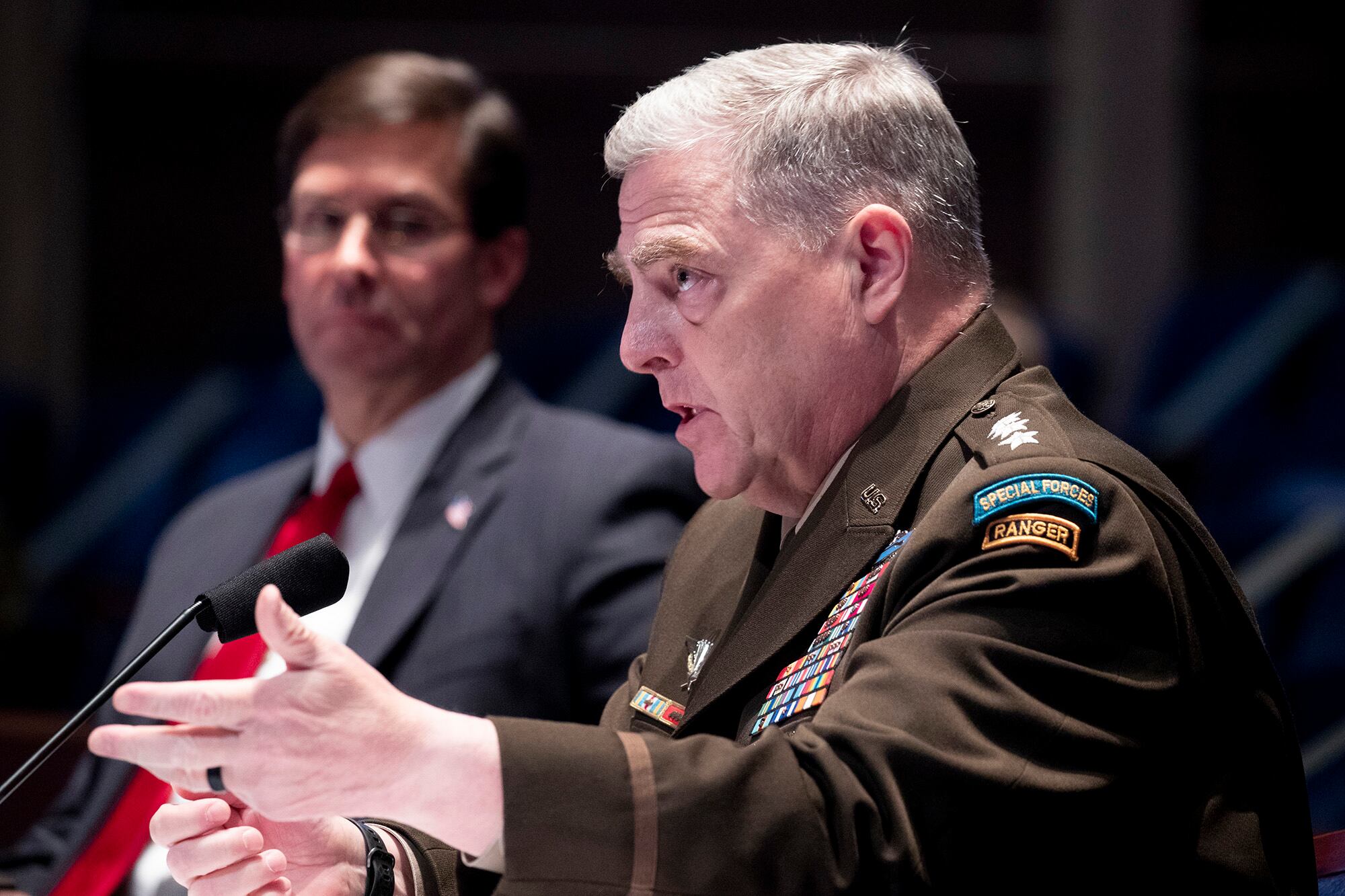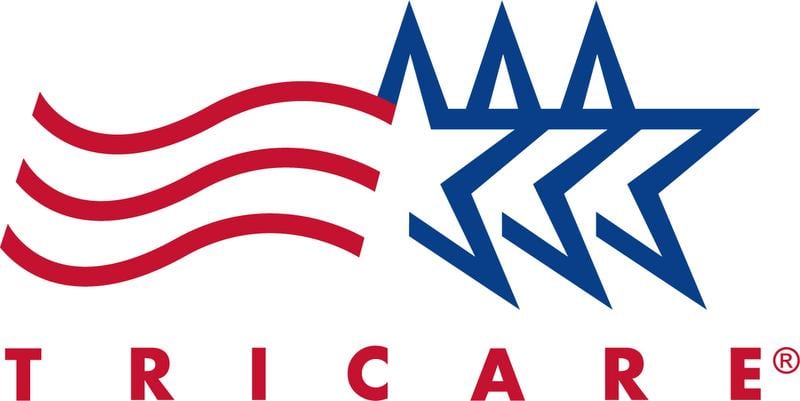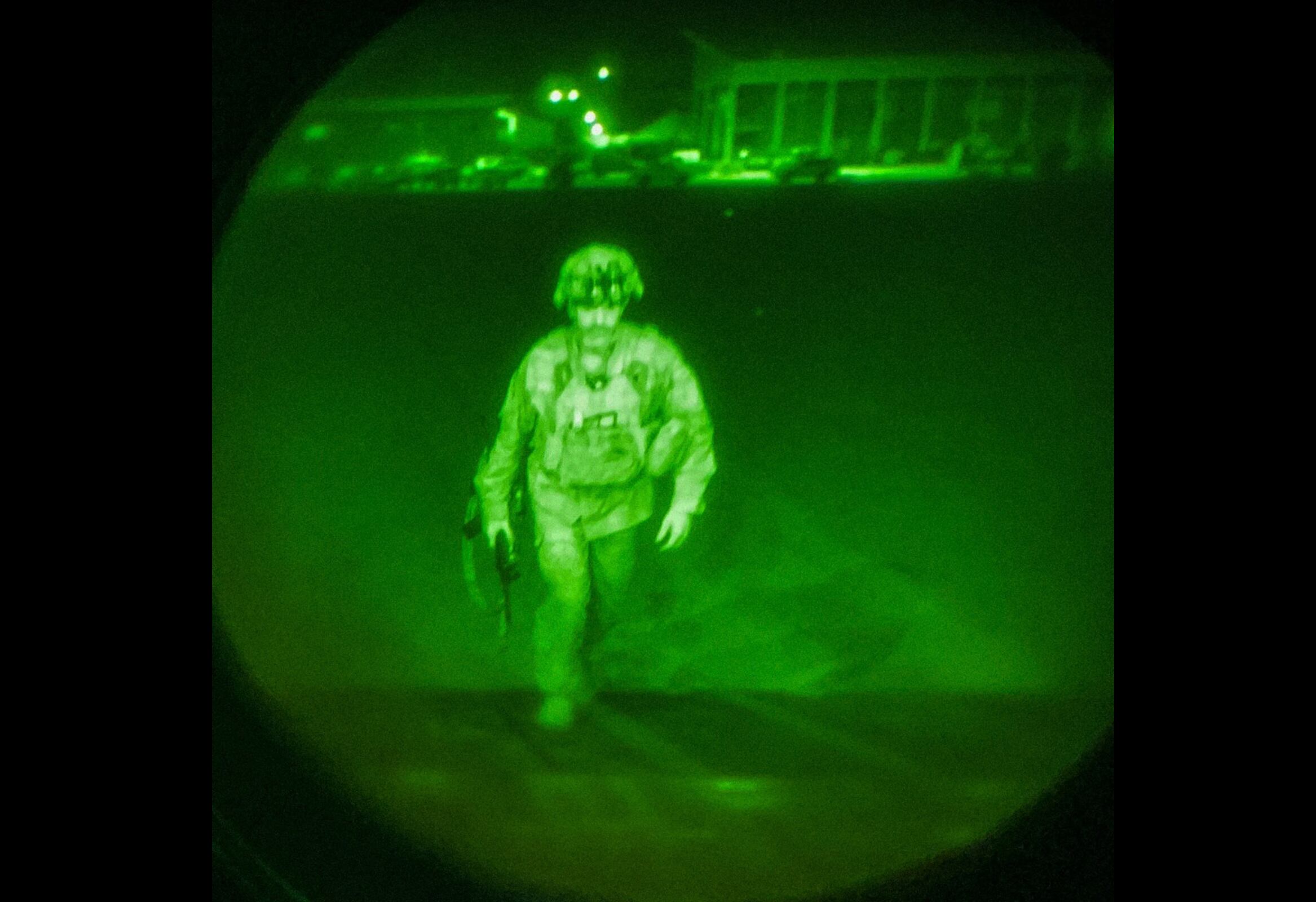From the Capitol riot to the chaotic withdrawal of U.S. troops from Afghanistan, national security stories dominated discussions in 2021 as the world began to move beyond the pandemic.
And those themes were evident in many of the articles Military Times readers viewed most in 2021. Each section reflects either several stories from a significant event or a single story that generated attention in the past year. (When curating the list, editors chose to leave out top stories from the Military Times’ Observation Post.)
The Jan. 6 Capitol Riot

Hundreds of rioters stormed the U.S. Capitol on Jan. 6, 2021, while Congress was trying to certify the results of the 2020 election. Five people died in the attack, including Air Force veteran Ashli Babbitt, who was shot by Capitol police as she climbed through the broken part of a door during the insurrection. Capitol Police officer and Air National Guard veteran Brian Sicknick died from injuries he received when responding to the attack.
Hundreds of National Guard troops were posted in the streets of Washington, D.C., as pro-Trump rioters overran the Capitol on Jan. 6. Because Capitol Police did not extend an invitation for the National Guard to respond until after the breach, there was little Guardsmen could do to protect the Capitol.
Since Jan. 6, more than 650 people have been arrested in connection with the riot. Dozens of those are veterans, including retired Air Force officer Larry Rendall Brock, Jr. In the wake of those arrests, the Pentagon announced it was already reviewing its policies on extremist activity, recently releasing new guidelines aimed to stop the rise of extremism.
The new guidelines aim to stop the rise of extremism, such as banning likes and shares of online posts associated with extremist ideology.
The U.S. withdrawal from Afghanistan

As American troops withdrew from Afghanistan, ending the 20-year war there, the Taliban began to take over cities. In the final days of the withdrawal, 13 service members were killed in an attack outside the Hamid Karzai International Airport in Kabul. The troops were the first killed in action in Afghanistan since February 2020. Dozens of Afghans were also killed. The Islamic State of Iraq and the Levant – Khorasan Province, known as ISIS-K or ISIS-KP, claimed credit for the attack.
The airport in Kabul became a chaotic scene after the attack as troops continued to evacuate. British and French forces pushed inside Kabul to secure the safety of their citizens. President Joe Biden defended America’s exit, but there has been much criticism surrounding the withdrawal and the effort to evacuate American citizens and allies. In addition, calls and texts to the Veterans Crisis Line spiked as Afghan allies struggled to flee the country. Service members and military bases are helping Afghan refugees resettle in the United States through Operation Allies Welcome, but veterans and service members are still calling on Congress and Biden for action in the continued evacuation efforts.
Lawmakers grilled Pentagon leaders on the withdrawal in September, and two of the military’s top generals told members of Congress they did not support the withdrawal. The 2022 National Defense Authorization Act created the Afghanistan War Commission Act, with the hope that the group will lead to accountability for U.S. mistakes in Afghanistan and lessons for policymakers in future conflicts.
The Pentagon also received criticism after a widely-circulated photo of caged working dogs in an aircraft hangar at HKIA led social media purveyors to believe that the U.S. left behind military working dogs. The Pentagon said no military working dogs were left in Afghanistan as American troops withdrew from Afghanistan Aug. 31.
The Afghanistan war cost the U.S. more than $2 trillion. It’s estimated that caring for veterans that served in Afghanistan and Iraq could top that.
Comprehensive coverage about Afghanistan, including the continued evacuation efforts is here.
A Marine officer speaks out — and faces consequences

Marine Lt. Col. Stuart Scheller posted a now-viral video shortly after news broke that 13 service members were killed in a suicide bombing at Hamid Karzai International Airport in Kabul amid the U.S. withdrawal from the country. Scheller called for accountability from senior leadership over the nature, and what he called failures, of the withdrawal. Scheller was fired from his position, put in military jail, charged, and later pleaded guilty, to six violations of the Uniform Code of Military Justice. He was discharged from the Marine Corps Dec. 23.
In an interview with Military Times in November, Scheller’s parents said the Corps failed their son.
Russia builds up forces near Ukraine border

A Russian military buildup near the country’s borders with Ukraine is topping headlines at the end of 2021. Ukraine’s defense intelligence agency told Military Times that Russia is planning to attack Ukraine by the end of January or beginning of February. Russian President Vladimir Putin insists the buildup is defensive, while officials in Ukraine say there is a potential for “all-out war” or a “creeping occupation.” Russia’s foreign minister has said negotiations with the U.S. and NATO are expected to begin in January 2022.
Experts say a full-on Russian invasion of Ukraine is unlikely. President Joe Biden described what could happen if a military advance occurs.
The U.S. military confronts Critical Race Theory

As the idea of Critical Race Theory being taught in schools sparked discussions across the country, the chairman of the Joint Chiefs of Staff, Gen. Mark Milley, responded to questions about CRT in the U.S. military during a Congressional hearing.
Viewers can watch his response and read how the military was pulled into this discussion.
Tricare starts charging retirees and family members

In 2021, for the first time, more than 850,000 retirees and family members enrolled in Tricare Select, were required to pay enrollment fees to continue their coverage. Ultimately, about 124,000 retirees and family members were dropped from the plan.
An Army veteran is accused of scamming the VA

Army veteran William Rich faces up to 30 years in federal prison after prosecutors say he falsely claimed to the Department of Veterans Affairs that he is a paraplegic. The Justice Department said Rich was granted 100 percent disability from the VA in 2007 based on falsely claiming paralysis in his “lower extremities,” resulting in more than $1 million in benefits and compensation being paid out.





